Look Sports Media – Guild Esports’ ambitious venture into the esports world ended in a spectacular collapse, leaving behind a trail of unpaid creators, disgruntled staff, and a mountain of unanswered questions. What started with the fanfare of David Beckham’s endorsement and the promise of a UK-centric esports powerhouse quickly devolved into a cautionary tale of financial mismanagement, corporate interference, and a toxic workplace culture.
In 2020, Guild Esports burst onto the scene with the backing of football icon David Beckham, attracting sponsorships from major brands like Subway and Sky TV. The organization’s confidence was so high that it became only the second esports entity to go public, subjecting every decision to intense scrutiny.
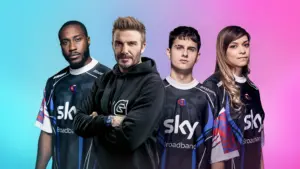
However, the esports community, known for its keen sense of authenticity, immediately questioned Beckham’s genuine interest in competitive gaming. Many feared that Guild would rely solely on an expensive celebrity endorsement without a solid plan. While Beckham’s involvement initially attracted talent and provided a strong selling point, it soon became apparent that his role was limited, and the organization struggled to leverage his star power effectively.

Related Post
Guild’s vision was to establish a UK-centric lifestyle brand, similar to 100 Thieves and FaZe Clan, but rooted in London’s culture. The goal was to create a strong brand identity, connect with British esports fans, and generate revenue through merchandise sales. However, the lack of authenticity and a concrete plan to utilize its star power hindered Guild’s ability to connect with fans.
The organization also partnered with prominent content creators like Nihachu and British stars like Gee Nelly, Harrie Silver, and Stevie White. However, without a clear strategy to leverage their influence and incentivize fan support, these partnerships proved largely ineffective.
Guild Esports was not shy about spending money. In late September, it raised £20 million in funding and completed its floatation on the London Stock Exchange with a market capitalization of £41.2 million. Yet, earlier this year, Guild’s stock had plummeted by over 90% from its peak, and the company faced losses of around £2 million.
Reports suggest that Guild spent at least £15 million for five years of David Beckham’s image rights. However, sources indicated that access to the celebrity for content was difficult to arrange, and his involvement was limited. One anonymous source even alleged that Guild used view bots to artificially inflate their numbers, leading to videos with high views but minimal engagement.
Content creator expenses were also substantial. One source claimed that Nihachu was paid a four-figure monthly sum just to feature a Guild Esports logo on her stream, with additional costs for campaign participation. Some creators were allegedly owed at least six months of pay before Guild’s collapse.
Despite a partnership with Sky, the organization reportedly hemorrhaged money through the upkeep and exorbitant rent of the Sky Guild Gaming Centre in Shoreditch, London.
One of the most significant issues was the lack of esports expertise among key staff members. While former Chief Executive Carleton Curtis had experience with Activision Blizzard and Grant Rousseau led esports operations, multiple sources claimed that corporate hires and their influence held the organization back. This was particularly evident in the commercial and partnership teams, leading to constant friction.
One anonymous source stated that people who didn’t understand the industry were "trying to learn on the job, building out what they wanted to be, a tier one esports team." Another added that many, especially in the partnership team, "didn’t even understand gaming."
This lack of understanding led to tensions, with partnership teams requesting player access without considering tournament schedules. One source claimed they wanted an esports team to fly in from Sweden to the UK for sponsored content with only a couple of days’ notice.
The lack of esports knowledge also impacted social media and content. Staff members felt restricted in creating content that would genuinely interest esports fans, opting for a safer, more bland approach. One former staff member claimed that David Beckham Ventures asked Guild to stop posting memes on Instagram, focusing instead on photos of influencers in Guild merchandise.
This personality-free social media strategy failed to resonate with fans, contrasting sharply with the successful approaches of FaZe Clan and 100 Thieves.
A constant theme from former employees was the toxic workplace culture at Guild. Tensions between teams were rampant, and some individuals declined to comment, not wanting to relive that period of their lives.
Former employees alleged widespread workplace bullying, particularly from one member of the marketing team, who was mentioned by everyone interviewed. This individual was also accused of making antisemitic comments, including remarks about "covering up" a Star of David symbol in the office, which was formerly a synagogue.
One former employee claimed they quit Guild due to a "mental health crisis" caused by this individual, alleging that they and others began self-harming due to the workplace bullying. The toxic atmosphere allegedly led to a high staff turnover, contributing to the lack of esports understanding and engaging content.
Guild Esports had the potential to thrive as a UK-based organization, capitalizing on London’s cultural hub to connect with fans authentically. While its support for women’s rosters was commendable, Guild ultimately became an example of what NOT to do in esports.
Throwing money at celebrities and creators without a clear brand identity or social media strategy repels fans. Esports is not the same as traditional sports, and immediate profits cannot be expected. Academies may not work, and viewers won’t automatically support the closest team geographically.
Failing to address a toxic work environment leads to the departure of talented staff, and a workforce lacking industry knowledge will always lead to disaster, especially when millions are invested with expectant shareholders.
Ironically, the lack of cohesion and a clear goal caused Guild Esports to fall apart.

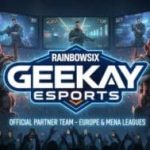



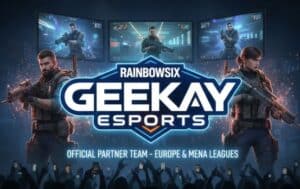
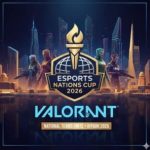
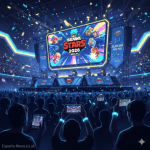
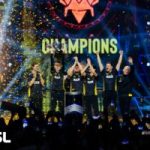

Leave a Comment